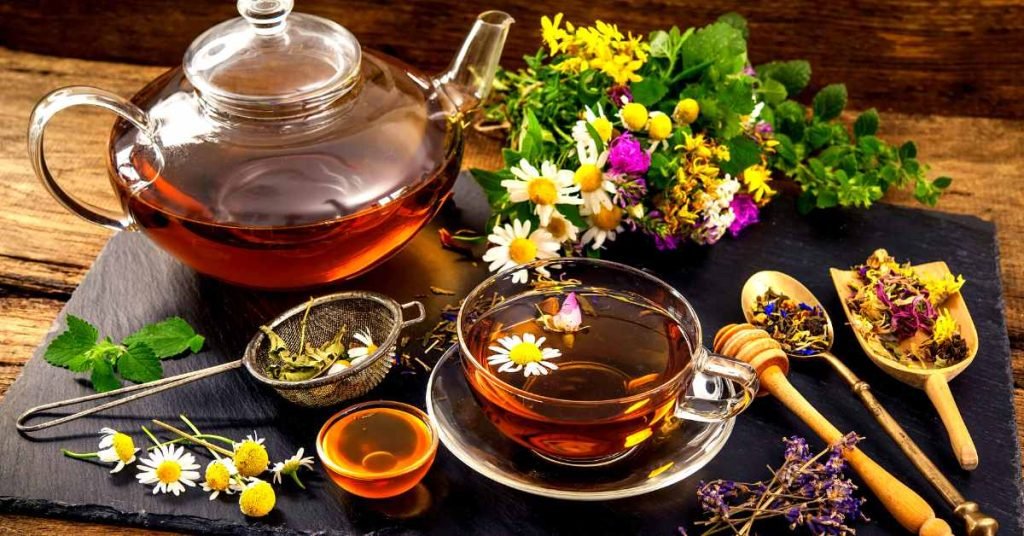Tea is a beverage that is enjoyed by people of all ages around the world. While many parents may think of tea as a drink for adults, there are actually many teas that are safe and beneficial for kids to enjoy.
From herbal teas to fruit teas, there are plenty of options that can offer a tasty and healthy alternative to sugary drinks.
In this article, we will explore the benefits of tea for kids, the types of teas that are best for them, and tips for introducing tea to your child’s diet.
Whether you’re looking for a way to help your child relax or just want to offer a fun and flavorful beverage, tea can be a great addition to your child’s routine.
When Can Kids Start Drinking Tea?

It is generally safe to introduce tea to children who are at least two years old, as long as it is consumed in moderation. However, it’s important to note that tea contains caffeine, which can be harmful to young children in large quantities.
If you choose to give tea to your child, it’s best to opt for herbal teas that do not contain caffeine, such as chamomile, peppermint, or ginger tea.
It’s also important to monitor your child’s intake and make sure they don’t consume too much, as excessive consumption of any beverage can lead to dehydration.
It’s always a good idea to consult with your child’s pediatrician before introducing new foods or beverages to their diet.
What Teas Are Best for Kids?
When it comes to teas for kids, it’s important to choose ones that are safe and appropriate for their age. Here are some of the best options:
Herbal Teas: Herbal teas are a great option for kids, as they are naturally caffeine-free and come in a variety of flavors. Some popular herbal teas for kids include chamomile tea, which can help soothe upset stomachs and aid with sleep, and peppermint tea, which can help with digestion.
Fruit Teas: Fruit teas, also known as tisanes, are made from dried fruits and berries and are naturally sweet and flavorful. They are a great alternative to sugary drinks and can be enjoyed hot or cold. Some popular fruit teas for kids include apple tea and berry tea.

Rooibos Tea: Rooibos tea, also known as red bush tea, is naturally caffeine-free and has a slightly sweet and nutty flavor. It’s a great option for kids and can be enjoyed plain or with a splash of milk.
Green Tea: Green tea contains caffeine, but in smaller amounts than black tea and coffee. It’s a good option for older kids who are used to the taste of tea and can handle a small amount of caffeine. Green tea has many health benefits, including antioxidants and a boost to the immune system.
Remember, when introducing tea to your child, start with small amounts and always consult with your child’s pediatrician if you have any concerns.
Is Black Tea Safe for Kids?
Black tea contains caffeine, which is a stimulant that can affect children differently than adults.
While small amounts of caffeine are generally considered safe for most children, excessive caffeine intake can cause restlessness, anxiety, and sleep disturbances.
For this reason, it’s generally recommended that young children avoid consuming black tea or any other caffeinated beverages.
Children who are older and can tolerate caffeine may be able to enjoy black tea in moderation, but it’s important to monitor their intake and make sure they don’t consume too much.

It’s also worth noting that black tea can interfere with the absorption of iron, which is an important nutrient for children. If your child has iron-deficiency anemia or is at risk for it, it may be best to avoid black tea altogether.
As always, it’s a good idea to consult with your child’s pediatrician before introducing new foods or beverages to their diet.
Final Word
In conclusion, tea can be a tasty and healthy beverage for kids when consumed in moderation and with the appropriate precautions.
While it’s generally safe to introduce tea to children who are at least two years old, it’s important to monitor their intake and choose teas that are caffeine-free and age-appropriate.
Herbal teas, fruit teas, rooibos tea, and green tea are some of the best options for kids.
It’s also important to consult with your child’s pediatrician before introducing new foods or beverages to their diet.
With proper care and attention, tea can be a great addition to your child’s routine and a wonderful way to introduce them to new flavors and traditions.
MEDICAL DISCLAIMER
Itsnevernotteatime.com cannot and does not contain medical/health advice. The medical/health information is provided for general and educational purposes only and is not a substitute for professional advice.




